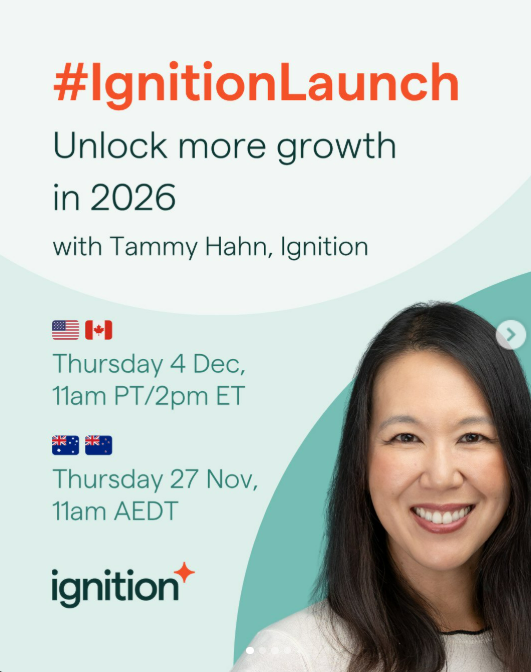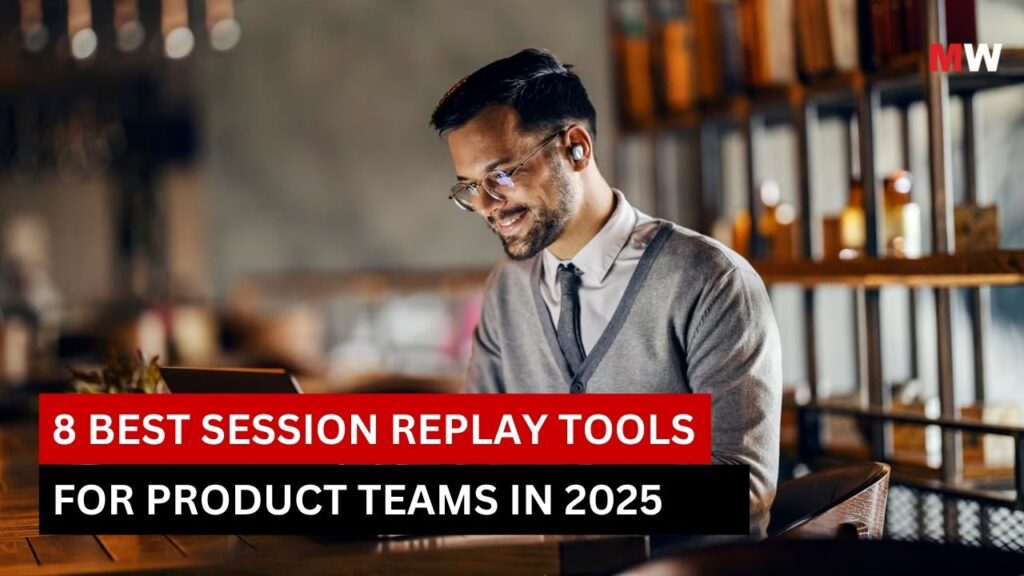Elevate Your Marketing Strategy in the Digital Era
In today’s digital landscape, online advertising is essential for businesses eager to expand their reach and drive traffic to their websites. Google Ads, formerly known as Google AdWords, stands as a powerhouse in this realm, offering a comprehensive platform for running pay-per-click (PPC) campaigns.
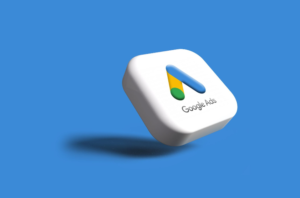
To fully harness the potential of Google Ads and ensure successful PPC campaigns, understanding its intricacies and adhering to best practices is vital. In this article, we’ll explore Google Ads and share essential tips for running effective PPC campaigns.
The Importance of PPC in Digital Marketing
Businesses today require a strong online presence to thrive. Paid search advertising allows companies to position their ads at the top of search engine results pages (SERPs), ensuring visibility among their target audience. But what makes sponsored search advertising effective? Let’s dive into its advantages and examine key statistics that highlight its significance.
What Is Pay-Per-Click (PPC)?
Pay-per-click (PPC) is a digital marketing strategy that involves purchasing website traffic through an auction-style system. Advertisers pay a fee each time their ads are clicked, with the highest bidder for a specific keyword appearing at the top of the SERP. This approach helps businesses drive targeted traffic, generate leads, and ultimately close sales by utilizing strategically chosen keywords.
Understanding Google Ads PPC
With Google Ads, brands can connect with prospective clients actively searching for relevant products or services. This highly personalized advertisement service offers control over ad spending, comprehensive tracking and reporting, and the flexibility to adjust campaigns based on performance data.
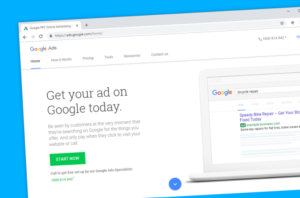
The journey begins with keyword research, where advertisers identify relevant terms potential buyers may use to search for their offerings.
The Google Ads Platform
Google Ads serves as a powerful advertising platform where marketers can bid on specific keywords to display their ads in Google search results and across Google’s vast advertising network. With its PPC model, advertisers only pay when users click on their ads, making it an effective strategy for attracting niche audiences.
Defining Clear Campaign Goals
Before diving into Google Ads, it’s essential to set clear campaign goals. Are you aiming to increase sales, boost brand awareness, generate leads, or drive website traffic? Establishing specific goals will shape your campaign strategy, ad creatives, and budget allocation. Utilize the SMART criteria—Specific, Measurable, Achievable, Relevant, Time-bound—to clarify your objectives and stay focused.
Keyword Research: The Foundation of Success
A successful Google Ads campaign begins with effective keyword research. Choose relevant terms and phrases that align with your industry and target market.
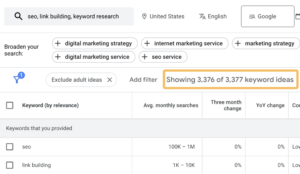
Tools like Google Keyword Planner, SEMrush, and Ubersuggest can help identify high-performing keywords and offer insights into competitors’ strategies.
Tips for Effective Keyword Research:
- Long-Tail Keywords: Target longer, more specific phrases to capture niche audiences.
- Competitor Analysis: Analyze competitors’ keywords to uncover opportunities.
- Negative Keywords: Use negative keywords to filter out irrelevant traffic.
Crafting Compelling Ad Copy
Your ad copy should be concise, persuasive, and relevant to your chosen keywords. Highlight your key selling points and include strong calls to action (CTAs) to motivate users to click. Engaging ad text can significantly improve your click-through rate (CTR).

Key Elements of Compelling Ad Copy:
- Use of Emotional Appeal: Connect with users by addressing their pain points and desires.
- Unique Selling Proposition (USP): Clearly communicate what sets your product apart.
- Dynamic Keyword Insertion (DKI): Use DKI to automatically include search terms in your ad copy for relevance.
Utilizing Ad Extensions for Better Visibility
Ad extensions enhance your ads by providing additional information, such as site links, callout extensions, and location details. Leveraging these extensions can make your ads more informative and attractive. Recent additions like image extensions and promotion extensions further boost engagement.

Choosing the Right Bidding Strategy
Google Ads offers various bidding strategies, including manual CPC, automatic bidding, and target ROAS (Return on Ad Spend). Select the strategy that aligns with your campaign goals and monitor it closely. Consider implementing Performance Max campaigns to optimize ads across all Google channels automatically.
Budgeting Wisely for Success
Establish a reasonable budget for your Google Ads campaign. Start with a manageable amount and adjust based on performance data. Research by ROI Amplified indicates that companies with clearly defined budgets achieve an average of 47% higher ROI compared to those without a structured budgeting strategy. Staying informed about industry budget benchmarks can also guide your financial strategy.
Monitoring and Optimizing Campaign Performance
Regularly track your campaign’s performance metrics, such as CTR, conversion rate, and Quality Score.
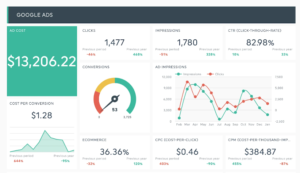
Make data-driven adjustments to enhance efficiency. Integrating Google Analytics provides deeper insights into user behavior post-click, enabling you to refine your strategy.
Enhancing Ad Quality and User Experience
Google places a high value on ad quality and user experience. Ensure your landing page is relevant to your ad and offers a seamless user journey. Focus on Core Web Vitals—measurable factors affecting user experience—as they increasingly impact ad performance.
Ad Scheduling and Geo-Targeting Strategies
Optimize your ad scheduling to display ads during peak times when your target audience is most active. Google Ads allows you to do Geo-targeting to focus your campaigns on specific locations, ensuring your ads reach the right people. Utilize data analytics tools to pinpoint optimal times and geographical areas for engagement.
Remarketing: Reconnecting with Your Audience
Remarketing on Google Ads enables you to engage with users who have previously interacted with your website.
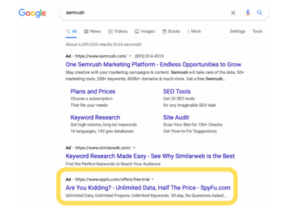
Craft tailored ads to re-engage potential clients and encourage them to make a purchase. Segment your remarketing lists based on user behavior to improve efficiency and relevance.
Experimenting with Ad Variations
Don’t hesitate to test multiple ad variations to find the most effective combinations. Use A/B testing in Google Ads to identify which elements resonate best with your audience. Consider employing multivariate testing for more complex experiments to optimize your ads thoroughly.
Optimizing for Mobile Users
As mobile usage continues to rise, optimizing your landing pages and ads for mobile users is crucial. Ensure a seamless experience for smartphone and tablet users by implementing responsive design principles and adhering to mobile-first indexing practices.
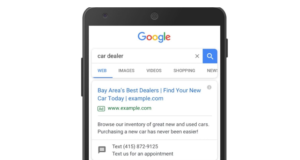
Staying Updated with Google Ads Changes
Google frequently updates its advertising platform. Stay informed about new features, best practices, and industry trends to keep your campaigns competitive. Subscribe to the Google Ads blog and follow industry leaders on social media for the latest insights.
Conclusion: Your Path to PPC Success
Google Ads is a powerful tool for businesses looking to drive targeted traffic and achieve online advertising goals. By setting clear goals, conducting thorough keyword research, crafting compelling ad copy, and following best practices, you can run successful PPC campaigns that yield positive results.
Dynamic and adaptable PPC ads respond swiftly to changes in the digital landscape. By implementing these strategies and committing to ongoing improvement, you can increase traffic, boost conversions, and achieve a solid return on investment from your PPC advertising efforts. Remember, long-term success in digital advertising comes from a continuous process of refinement and adaptation.
As you embark on your journey to PPC success, consider how Mavenwit’s tailored solutions can elevate your marketing efforts and help you achieve lasting growth in a competitive landscape.



